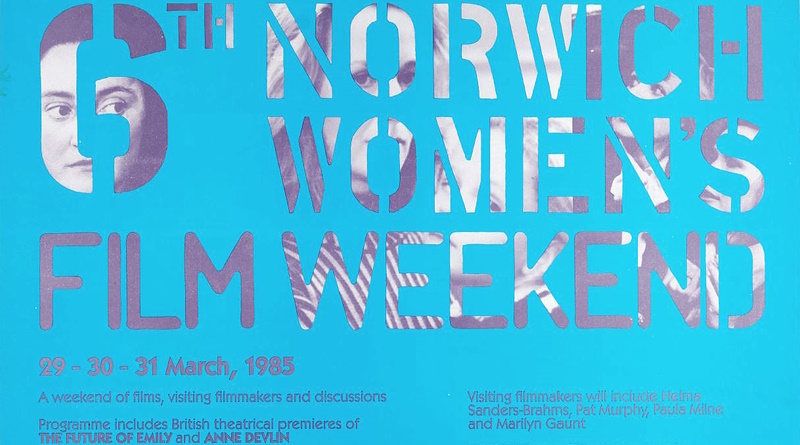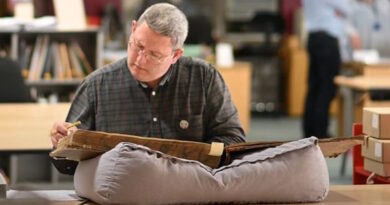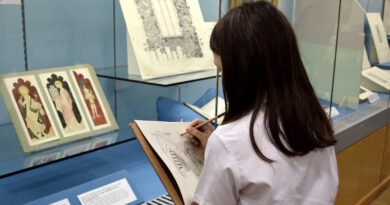Digitising Norwich Women’s Film Weekend
In June 2022, NORAH agreed to fund the digitisation of an archive which documents the Norwich Women’s Film Weekend (NWFW). This has enabled the Norfolk Heritage Centre, who holds the archive, to host selected images on the Picture Norfolk website and the Cinewomen website. Cinewomen was the name of the group which organised the NWFW. NORAH recognises that records which provide evidence of what people did, including in their leisure time, are worthy of permanent preservation. NORAH is therefore delighted to help improve access to such an archive by making it freely and publicly available.
The Norwich Women’s Film Weekend
This was an annual three-day event that ran at Cinema City from 1979 to 1989. The NWFW was a national and international, as well as local, event. It lasted longer than any other women’s film festival in the UK and forms part of the history of women’s cinema and feminism generally. It also made a significant contribution to the history of culture and the arts in Norwich.
Audiences and filmmakers came to Norwich from all over the UK and beyond. It was part of a national trend in terms of feminist activism, the growing access of women to film-making positions (other than as actors) and the rise of feminist film history. It received support throughout its 10-year history from organisations such as Cinema City, the University of East Anglia, the Eastern Arts Association and the British Film Institute.
What’s in the Archive?
The archive includes posters, other visual materials and programmes. They provide a catalogue of screenings and articles written by feminist film critics, theorists and historians (including Cinewomen themselves). They offer a fascinating insight into the inclusive, community-focused nature of this event. The organisers didn’t just programme films and liaise with speakers, they also arranged free accommodation (through friends and local networking) for those travelling from afar; a free creche; and cheap catering. They also wrote and designed promotional materials themselves.
Why is the Archive Important?
Women’s film festivals began because of the lack of female voices within the film industry. Many focused on experimental films featuring underrepresented themes and issues distinct to women and girls. In contrast, the NWFW archive demonstrates the exceptionally inclusive nature of the event. The NWFW was unique in its forward-thinking curation and programming, covering early women pioneers of the silent era; a re-examination of Hollywood history; a strong commitment to European cinema; an equally strong commitment to undervalued or forgotten British women directors (TV as well as film); new, adventurous films being made in the workshop movement including animation, avant-garde and structuralist film-making, and work by black women film-makers from the UK and US. Many film-makers – some of whom were later to become very well-known – presented their work in person, and there were lively discussions and arguments.
Many of these films and filmmakers are part of mainstream film history today, but their existence was absolutely revelatory at the time. Looking at the archive there is a real sense of excitement and discovery. It forms part of social history, with new films screened encompassing the issues and campaigns that were of vital concern to women during the 1980s. An example is Carry Greenham Home (1983), a documentary about the women of the Greenham Common Peace Camp.
The collection enables an understanding of how the concept of ‘women’s film’, and of what a feminist film event could be, changed over the decade of the festival’s existence. By making the collection accessible to all, it will fill a gap in the history of feminist film and TV events in the UK and worldwide. The NWFW helped give rise to other (better-documented) events, but its story has been lost.
Acknowledgements
Thank you to the Norfolk Heritage Centre for much of the text for this article and the featured image which is an extract from a poster advertising the 1985 festival.




